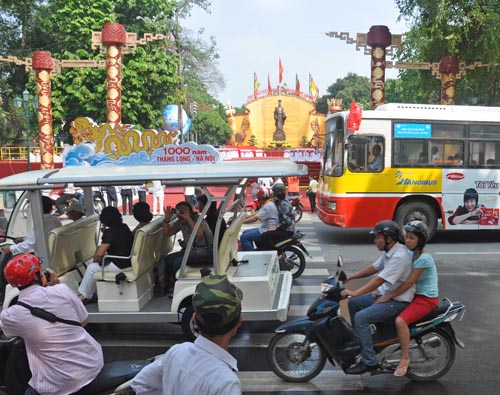
French President Emmanuel Macron will visit Vietnam next week as part of a wider Southeast Asia tour, with infrastructure and energy cooperation expected to top the agenda. The trip, the
first by a French president to Vietnam in nearly ten years, could see the signing of dozens of agreements, according to French officials.
Macron is scheduled to arrive in Hanoi on May 25 before heading to Indonesia on May 27. He will conclude the tour in Singapore, where he will address the annual Shangri-La Dialogue, Asia's premier defense summit, beginning on May 30.
The French presidency confirmed that numerous deals are in the works, with one official noting that around 30 agreements may be signed during the Vietnam leg of the visit. Vietnam’s foreign ministry has not commented publicly on the expected discussions.
Vietnam, which relies heavily on exports, is shifting its economic strategy in response to global trade tensions, particularly with the United States. The government is ramping up public investment, especially in sectors like transport, communications, and energy.
Macron’s visit follows recent regional trips by leaders from China, Japan, and Europe, underlining Southeast Asia’s growing strategic and economic importance amid ongoing global supply chain uncertainties.
Key areas of cooperation: satellites and energy
Among the agreements under negotiation is a deal to replace Vietnam’s existing earth-observation satellite, launched in 2013 and originally built by Airbus Defence’s predecessor. A memorandum of understanding could be signed during Macron’s visit, and further discussions around satellite cooperation are ongoing. Airbus has not commented.
Energy will also be a focal point of talks. French officials expect progress on renewable energy initiatives tied to the EU-supported Just Energy Transition Partnership. Nuclear energy is on the discussion table as well, although no specific deals are anticipated at this stage. Vietnam recently revived its nuclear energy ambitions to meet rising power demand driven by its fast-growing economy.
While Russia and Japan are currently leading Vietnam’s nuclear discussions, France, South Korea, and the U.S. have also explored partnerships. Vietnamese officials noted that talks with the U.S. made headway alongside broader trade discussions this week.
France is additionally interested in Vietnam’s proposed high-speed rail project between Hanoi and Ho Chi Minh City—a $67 billion venture that would be the largest infrastructure undertaking in the country’s history. Photo by USAID Vietnam, Wikimedia commons.



































